| Look up gramophone or Gramophone in Wiktionary, the free dictionary. |
Gramophone or phonograph is a device for the mechanical recording and reproduction of sound.
Contents
Gramophone may also refer to:
| Look up gramophone or Gramophone in Wiktionary, the free dictionary. |
Gramophone or phonograph is a device for the mechanical recording and reproduction of sound.
Gramophone may also refer to:
The Gramophone Company Limited , based in the United Kingdom and founded on behalf of Emil Berliner, was one of the early recording companies, the parent organisation for the His Master's Voice (HMV) label, and the European affiliate of the American Victor Talking Machine Company. Although the company merged with the Columbia Graphophone Company in 1931 to form Electric and Musical Industries Limited (EMI), its name "The Gramophone Company Limited" continued in the UK into the 1970s.
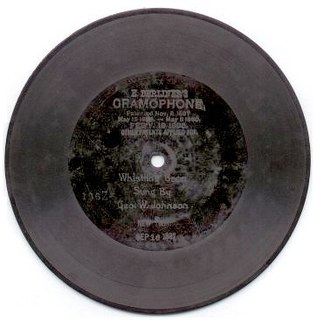
Berliner Gramophone – its discs identified with an etched-in "E. Berliner's Gramophone" as the logo – was the first disc record label in the world. Its records were played on Emile Berliner's invention, the Gramophone, which competed with the wax cylinder–playing phonographs that were more common in the 1890s.

Deutsche Grammophon (DGG) is a German classical music record label that was the precursor of the corporation PolyGram. Headquartered in Berlin Friedrichshain, it is now part of Universal Music Group (UMG) since its merger with the UMG family of labels in 1999. It is the oldest surviving established record company.
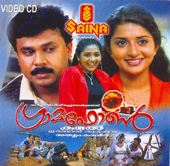
Gramaphone is a 2003 Malayalam musical drama film by Kamal starring Dileep, Meera Jasmine and Navya Nair.
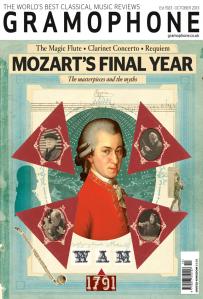
Gramophone is a magazine published monthly in London devoted to classical music, particularly to reviews of recordings. It was founded in 1923 by the Scottish author Compton Mackenzie. It was acquired by Haymarket in 1999. In 2013 the Mark Allen Group became the publisher.
The Gramophone Classical Music Awards, launched in 1977, are one of the most significant honours bestowed on recordings in the classical record industry. They are often viewed as equivalent to or surpassing the American Grammy award, and referred to as the Oscars for classical music. They are widely regarded as the most influential and prestigious classical music awards in the world.

Gramaphone Records is a DJ-based vinyl record store in Chicago, Illinois.
| This disambiguation page lists articles associated with the title Gramophone. If an internal link led you here, you may wish to change the link to point directly to the intended article. |

His Master's Voice (HMV) is a famous trademark in the recording industry and was the unofficial name of a major British record label. The phrase was coined in the 1890s as the title of a painting of a terrier mix dog named Nipper, listening to a wind-up disc gramophone. In the original painting, the dog was listening to a cylinder phonograph. In the 1970s, the statue of the dog and gramophone, His Master's Voice, were cloaked in bronze and was awarded by the record company (EMI) to artists or music producers or composers as a music award and often only after selling more than 100,000 recordings.
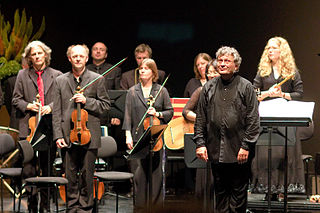
René Jacobs is a Belgian musician. He came to fame as a countertenor but in recent years has become renowned as a conductor of Baroque and early Classical opera.
The Grammy Award for Best Music Film is an accolade presented at the Grammy Awards, a ceremony that was established in 1958 and originally named the Gramophone Awards, to performers, directors, and producers of quality videos or musical programs. Honors in several categories are presented at the ceremony annually by the National Academy of Recording Arts and Sciences of the United States to "honor artistic achievement, technical proficiency and overall excellence in the recording industry, without regard to album sales or chart position".

Naxos Records is a record label specializing in classical music. Through a number of imprints, Naxos also releases Chinese music, jazz, world music, and early rock and roll. The company was founded in 1987 by Klaus Heymann, a German-born resident of Hong Kong. Since 2009 Naxos has distributed Blu-ray discs, streaming web radio, and podcasts. Naxos allows members of subscribing public libraries and music schools such as Hong Kong Public Libraries, Auckland Libraries, Wellington City Libraries, and Toronto Public Library free streaming of Naxos classical and jazz collections.
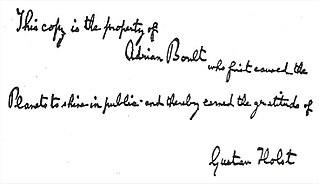
Liner notes are the writings found on the sleeves of LP record albums and in booklets which come inserted into the compact disc jewel case or the equivalent packaging for vinyl records and cassettes.
Dame Mitsuko Uchida, DBE, born 20 December 1948) is a classical pianist and conductor, born in Japan and naturalised in Britain, particularly noted for her interpretations of Mozart and Schubert.
Angel Records was a record label founded by EMI in 1953. It specialised in classical music, but included an occasional operetta or Broadway score. The Angel mark was used by EMI, its predecessors, and affiliated companies since 1898. EMI's classical-music operations were sold to Warner Music Group in 2013. The label is currently inactive since 2006, dissolving and reassigning Angel Records' artists and catalogues into its parent label EMI Classics and musical theatre artists and catalogues into Capitol Records. EMI Classics was sold and absorbed into Warner Classics.
The Grammy Award for Best Remixed Recording, Non-Classical is an honor presented to producers for quality remixed recordings at the Grammy Awards, a ceremony that was established in 1958 and originally called the Gramophone Awards. Honors in several categories are presented at the ceremony annually by the National Academy of Recording Arts and Sciences of the United States to "honor artistic achievement, technical proficiency and overall excellence in the recording industry, without regard to album sales or chart position".
Hyperion Records is an independent British classical record label.
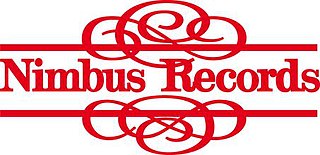
Nimbus Records is a British record company based at Wyastone Leys, Ganarew, Herefordshire, England. They specialise in classical music recordings and were the first company in the UK to produce compact discs.
Chandos Records is a British independent classical music recording company based in Colchester. It was founded in 1979 by Brian Couzens.

Saregama India Ltd. is India’s oldest music label owned by RPSanjiv Goenka Group of companies. The company is listed on the NSE and BSE with its head office located in Kolkata and other offices in Mumbai, Delhi and Chennai. Apart from music, Saregama also produces films under the brand name Yoodlee Films and multi-language Television content.

Harmonia Mundi is an independent record label which specializes in classical music, jazz, and world music. It was founded in France in 1958 and is now a subsidiary of PIAS Entertainment Group.
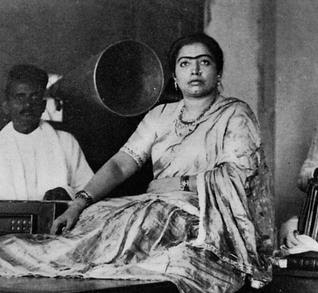
Gauhar Jaan was an Indian singer and dancer from Calcutta. She was one of the first performers to record music on 78 rpm records in India, and released by Gramophone Company of India. Having recorded more than 600 records in more than ten languages between 1902 and 1920, Gauhar Jahan is credited with popularising Hindustani classical music such as thumri, dadra, kajri, tarana during the period.
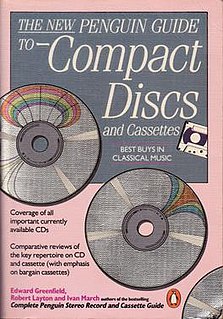
The Penguin Guide to Recorded Classical Music was a widely distributed annual publication from Britain published by Penguin Books that reviewed and rated currently available recordings of classical music. It was written by Ivan March, a music journalist, consultant and former professional musician; Edward Greenfield, former music critic of The Guardian newspaper and Robert Layton, music writer and lecturer. All three were also reviewers for the UK classical music periodical Gramophone. From 2008-2010, a fourth contributor was listed also as a co-author, Paul Czajkowski, who had been listed an editor from the 2002 book.
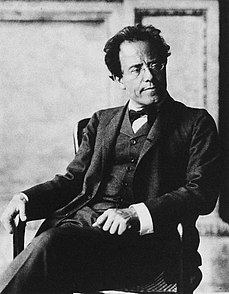
The first complete recording of Gustav Mahler's Eighth Symphony was made on 9 April 1950, with Leopold Stokowski conducting the New York Philharmonic and combined New York choirs. The recording was of a live performance at the Carnegie Hall. Nearly two years earlier the Hungarian-born conductor Eugene Ormandy had recorded the "Veni Creator Spiritus" movement, with the Hollywood Bowl Orchestra in a performance at the Hollywood Bowl in July 1948. Since Stokowski's version at least 70 recordings of the symphony have been made, by many of the world's leading orchestras and singers, mostly during live performances. This number includes recordings which were for private or limited distribution and were not issued under commercial record labels.
The Grammy Award for Best Classical Compendium is an honor presented at the Grammy Awards, a ceremony that was established in 1958 and originally called the Gramophone Awards, to recording artists for quality compendium albums in the classical music genre. Honors in several categories are presented at the ceremony annually by the National Academy of Recording Arts and Sciences of the United States to "honor artistic achievement, technical proficiency and overall excellence in the recording industry, without regard to album sales or chart position".

Kenneth Alwyn is an English conductor, composer and writer. Described by BBC Radio 3 as "one of the great British musical directors", Alwyn is known for his many recordings, including with the London Symphony Orchestra on Decca’s first stereophonic recording of Tchaikovsky’s 1812 Overture. He is also known for his long association with BBC Radio 2’s orchestral live music programme Friday Night is Music Night, appearing for thirty years as a conductor and presenter, and for his contribution to British musical theatre as a prolific musical director in the 1950s and 1960s. He is a Fellow of the Royal Academy of Music and is married to the actress Mary Law. The first volume of his memoirs A Baton in the Ballet and Other Places was published in 2015. The second volume Is Anyone Watching? was published in 2017.